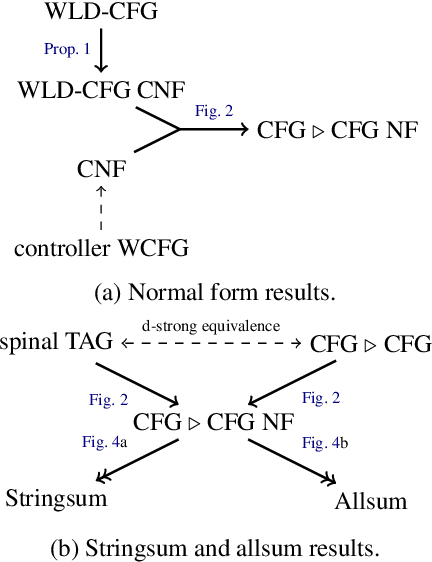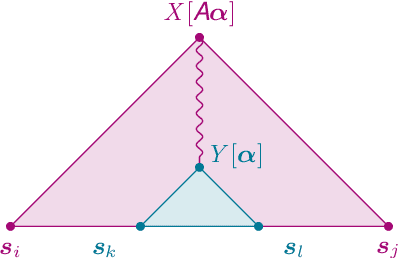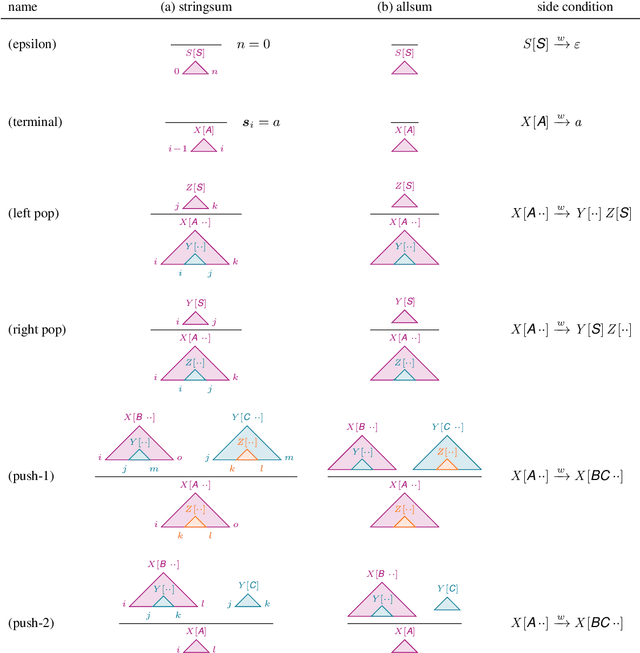Efficient Algorithms for Recognizing Weighted Tree-Adjoining Languages
Paper and Code
Oct 23, 2023



The class of tree-adjoining languages can be characterized by various two-level formalisms, consisting of a context-free grammar (CFG) or pushdown automaton (PDA) controlling another CFG or PDA. These four formalisms are equivalent to tree-adjoining grammars (TAG), linear indexed grammars (LIG), pushdown-adjoining automata (PAA), and embedded pushdown automata (EPDA). We define semiring-weighted versions of the above two-level formalisms, and we design new algorithms for computing their stringsums (the weight of all derivations of a string) and allsums (the weight of all derivations). From these, we also immediately obtain stringsum and allsum algorithms for TAG, LIG, PAA, and EPDA. For LIG, our algorithm is more time-efficient by a factor of $\mathcal{O}(n|\mathcal{N}|)$ (where $n$ is the string length and $|\mathcal{N}|$ is the size of the nonterminal set) and more space-efficient by a factor of $\mathcal{O}(|\Gamma|)$ (where $|\Gamma|$ is the size of the stack alphabet) than the algorithm of Vijay-Shanker and Weir (1989). For EPDA, our algorithm is both more space-efficient and time-efficient than the algorithm of Alonso et al. (2001) by factors of $\mathcal{O}(|\Gamma|^2)$ and $\mathcal{O}(|\Gamma|^3)$, respectively. Finally, we give the first PAA stringsum and allsum algorithms.
 Add to Chrome
Add to Chrome Add to Firefox
Add to Firefox Add to Edge
Add to Edge